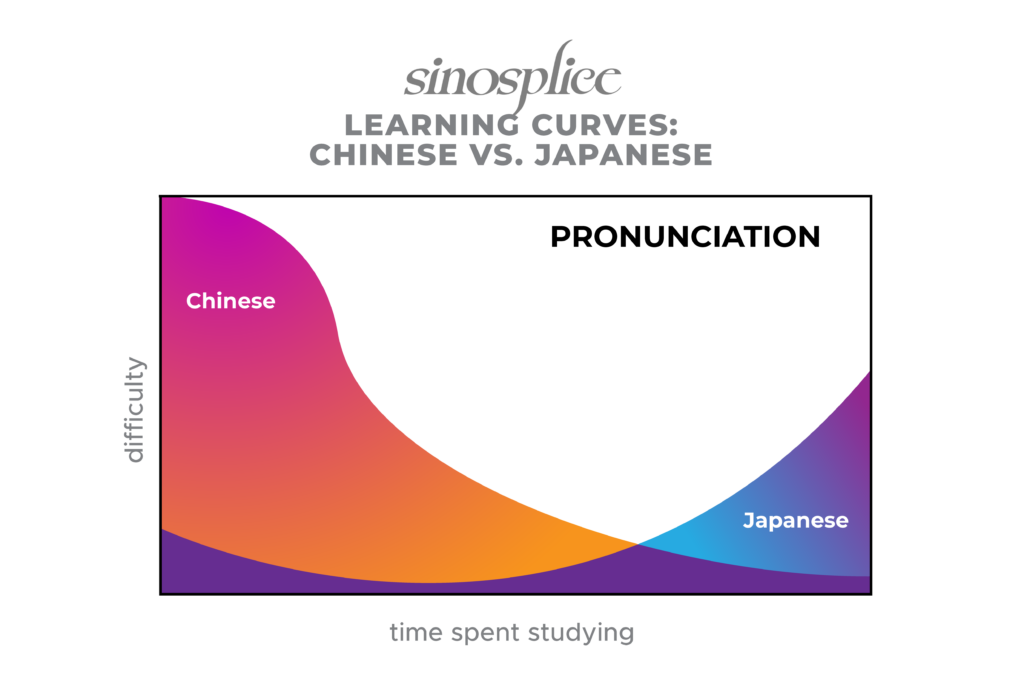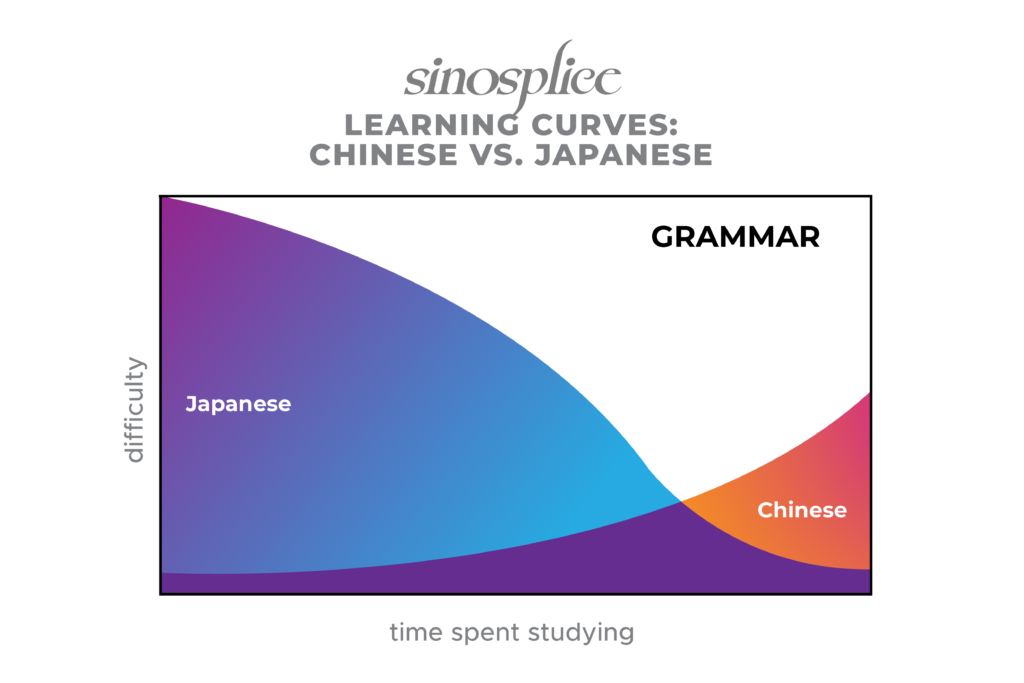11
Aug 2008Cucumber Jenga

Flickr photo by sadeog
At lunch with co-workers Christophe (of FrenchPod) and Marco (of ItalianPod), we noticed something interesting on the photo-laden menu. In the photo of the obligatory raw cucumber dish, the pieces were curiously arranged. In fact, they looked just like a stack of Jenga pieces. Cucumber Jenga pieces.
We had to investigate. The waitress said that yes, it looked like that. Yes, it was 6 or 7 layers high (enough for a game of Jenga). Satisfied, we placed our Cucumber Jenga order. It arrived with the pieces on the plate in an entirely un-Jenga-like configuration.
Not to be thwarted so easily, we erected our own Jenga stack. Oh yes, it worked.
We realized intuitively that Cucumber Jenga should be played with chopsticks.
It didn’t last long, because our other food arrived, and we were hungry. Marco lost.
One interesting feature of the game from an architectural standpoint is the shape of the pieces. They’re rough quarter-cylinders, not rectangular solids. Obviously, this makes a difference to the structure of the tower.
Engineers and fellow vegetable gamers, if you’re interested, the restaurant is at 886 Loushanguan Road, just a bit south of Changning Road (娄山关路886号,近云雾山路) [Dianping link]. You’ll know you’re at the right place when you check the menu and spot the Cucumber Jenga. [Note: It may be possible to play this game even without going to said restaurant.]
Give it a try. More fun than Moon Cake Shuffleboard, guaranteed.
Related Jenga Dishes on Flickr:
10
Aug 2008Animals as Language Partners
I talk to my dog in Chinese. It makes sense, really. He’s a Chinese dog.
He’s not a Chinese breed, but he’s born and raised in China. He may be white, but I’m not racist enough to make that mean English is his language too.
Jokes aside, it’s still not that simple. I’ve been paying attention to my dog’s other interactions, and it seems that my wife, normally not big on the “English practice” thing, talks to him an awful lot in English. (I mainly talk to him in English only when I’m mad at him for peeing on the floor… again.)
Yesterday Brad came over and talked to him in Chinese too. I’m not sure if he was just following my lead or what… I didn’t ask Brad about it, but I wouldn’t expect him to have consciously chosen the language he used to talk to a dog.
In some ways pets make the best language partners. They never criticize, never mishear or misunderstand… they just listen. The speaker is under no pressure to perform, and yet has the attention of a transfixed audience.
I’m quite sure I would not talk to my dog in Chinese if I were back in the States, though. My dog is experiencing the effect of his master living in a second language environment.
Obviously, a pet can never be a true language partner; there’s very little real communication and no negotiation of meaning going on. Still, it’s a nice intermediary step between talking to oneself and actually speaking with a human partner.
It does make me wonder, though: have there been studies on human-animal interaction in a second language acquisition context?
08
Aug 20088 8 8 8
It’s August 8, 2008 (08-08-08), and I’ve now been in China 8 years. (Yes, it’s my Chinaversary!)
It almost feels like something special should be happening on this day…
Related: There’s a #080808 craze sweeping the internet! (via Ryan)
04
Aug 2008Talking to Oneself Productively
As an English teacher in Hangzhou, China, one of the questions Chinese college students most often asked me was, “how can I improve my spoken English?” As a member of the ChinesePod team and student of applied linguistics, learners frequently ask me, “how can I improve my spoken Chinese?” Unfortunately, the are no easy answers or “secrets.” If you’re working hard learning Mandarin on ChinesePod and you’ve found a way to practice speaking, then you’re doing the right thing. But surely there might be an extra trick or two out there?
Actually, there are a few tricks out there, but their effectiveness tends to vary widely from person to person. The one I hear most often is “find a Chinese girlfriend,” but this one clearly has limited application, and it sometimes doesn’t even work for those with Chinese girlfriends/wives. This “trick” is a subset of a larger idea, which is just spend as much time with Chinese speakers as you can. But that one is obvious, and probably not useful for most learners.
One method I have found useful is to talk to myself in Chinese. Now before you stop reading, let me explain. I’m not talking about “How are you? Fine, thank you” type conversation. I mean all day long, as I think about different things, I ask myself, how would I say that in Chinese? If I said that in Chinese, how would the Chinese person respond? If the Chinese person responded X, what would I say then?

Let me provide an example of such a train of thought.
OK, I need to buy a lightbulb. How do I say lightbulb?
It’s “dēngpào.” So I want to say, “Wŏ xiăng măi dēngpào.” How will they react to that?
Well, they might say, “méi yŏu.” If they say that, I’ll just say, “hăo de, xièxie.”
But they should have them, so they’ll probably just say something like, “zài zhèli” or “yŏu de, zài nàbiān” and then I can just say “xièxie” and buy them.
Obviously, this is a rather simple example, but the method can be applied to much more complicated situations. The better your imagination, the more extensive and “branched” the “conversation.”
You might be thinking that this method has a major flaw… if you don’t know how to say these things in Chinese, then your every internalized “conversation” deadends rather abruptly. It’s true that the method works better once you get to the advanced beginner or intermediate stage, but the true value in the mental exercise is in identifying what you don’t know. It’s in identifying what you’re unsure of, before you actually have to use it. Then you can take these questions you come up with and either look them up somewhere (if possible) or ask your teacher.
Soon after I came to China and my Chinese was at the elementary level I would run through this exercise every time I needed to go do something that involved communicating in Chinese. I’d think of what I needed to say, how the other person might respond, and how I’d respond to that. I’d look up every word I didn’t know and write it down (making sure to get the tones right), then go and use it.
Talking to myself: it worked for me.
03
Aug 2008The Future of Live Music in Shanghai
Prophetic words from Brad Ferguson:
> I think live music in Shanghai is going to continue to suck progressively less and less over the next few years, and eventually it won’t suck. [source]
Elegantly put.
It’s too bad about Windows Underground, though. Without either live music or Brad’s presence (and music collection), I’m pretty much out of reasons to go there. (Their 10 RMB “special hamburgers” are pretty good, but not that good.)
01
Aug 2008DVD-selling Tenacity
From the SmartShanghai newsletter:
> This week’s newsletter goes out to my DVD lady, who not even one day after being told to shut shop by the filth, opened right up again and ripped me off on a shite copy of Hellboy II.
> That’s the kind of tenacity that’s going to make this the century of China.
I’ve heard about the “Olympic DVD Crackdown,” but I haven’t tried to buy any lately. With my computer in the shop, though (it was the video card fan that broke, causing the computer to overheat and shut down), I might try.
28
Jul 2008Solitude, Basketball, and Rain
I’m not sure what “reverse culture shock” is, really. I never feel a “shock,” or a strong sense of being out of place while I’m home in the USA. Perhaps I never go back for long enough. There are always different things that I notice, though. I’m well beyond “wow, Americans are fat” observations. This past trip, my most poignant “American” experience was on a basketball court.
I’d been meaning to practice my shot. I’ve played basketball precious little since I moved to Shanghai, years ago, and it shows.
There’s a little park with a basketball court in my parents’ neighborhood in Tampa. The park is public, but it’s usually empty. Since all I wanted to do was practice my shot, an empty court was exactly what I was looking for.
My second trip to the park was the last day of my visit. It was great to have the court all to myself while I slowly worked my shot back towards the “acceptable” range. As I felt the first few fat drops of rain, I knew that no one would be joining me.
In Florida when it rains, it rains with a sense of purpose. The rain comes down in earth-drenching torrents, but within several hours the sky is clear again. In Shanghai, on the other hand, the rain dawdles. It rains lightly, in stops and starts, for days, accomplishing little more than the creation of mud and the destruction of mood.
As the rain soaked me on the court, I felt amazingly clean. The ground looked just-washed. The rainwater in the gutter rushing to the storm drain was crystal clear. I walked home, acid-free rain in my eyes, feeling enormously satisfied.
I don’t blame China for what it is, but this combination of solitude, basketball, and rain cannot be had there.

Photo by purrfecjisteq on Flickr
26
Jul 2008The Name Nazi in Chinese Translation
Reader Kevin informs me that one of my classic blog entries, The Name Nazi Defied, has been translated into Chinese and widely circulated. Totally uncredited, of course.
It’s actually very good to see interest in what I had to say about the choosing of English names, and if you look at the comments on the postings, they’re mostly in agreement. It would be nice to be credited, though.
Here are a few of the translation postings:
– 老外受不了:中国学生这样的英文名让人耻笑
– 老外都受不了!中国学生取这样的英文名只能让人耻笑
– 老外都受不了!中国学生取这样的英文名只能让人耻笑
Oh, and in case you’re curious, they translated “Name Nazi” as “姓名纳粹.” (“姓名” seems like an odd choice for “name,” considering it was pretty much all 名 and no 姓 involved in the nazi-ing, but oh well…)
24
Jul 2008The Mighty Fuwa-tron
(Note the hilarious crotch detail.)
Original source (more pictures there); via Brendan.
22
Jul 200813 o'clock
Those of us that learn Mandarin according to the Beijing standard typically learn the expression 二百五 pretty early. While it seems to be the innocent number “250,” it actually has a slang meaning: “stupid” or “idiot.”
Those of us spending time in China’s south eventually come to a realization: you don’t hear 二百五 that much around here. What you do hear, especially in Shanghai, is 十三点 (“13 o’clock”). While it means basically the same thing as the north’s 二百五, it’s milder, often approaching something more like “silly” or “dopey” (in Chinese, 傻得可爱, or “cutely silly”).
Interestingly, Baidu Zhidao even gives us a poster child for the 十三点 look: a character once played by actress Zhao Wei (赵薇).
Baidu tells us that when it’s used between two people of the opposite sex, it’s often used in flirting (and most often comes out of the girl’s mouth).
As for origins of the expression, Baidu Zhidao gives us two main theories:
1. It’s a reference to an illegal move in a gambling game (6 and 7 can’t be played at the same time, and they add up to 13)
2. It’s a reference to an hour that traditional clocks do not strike (no military time back then!)
I thought 十三点 might be a fun thing to put on a shirt (more fun than “250” anyway), so I made this new one. I think it’s the kind of thing that laowai would enjoy wearing to see what kind of reaction it gets out of the Chinese, whereas the Chinese can’t fathom why a foreigner would possibly want to wear a shirt with that on it. (Good times all around!)
The Sinosplice shop has other conversation-starting Chinese-themed t-shirts.
19
Jul 2008End of Vacation
I’m back from the States with a new visa. I realize now it was a much-needed vacation.
My computer here in Shanghai seems to be infected with a virus (it keeps abruptly shutting off, especially when I use Skype or anti-virus software), so I’m reinstalling Windows today. It’s about time anyway… it’s been almost 2 years on this one install. Still, this kind of thing pushes me one step closer to wanting to buy a Mac.
Anyway, scheduled programming to resume shortly.
12
Jul 2008Mini-Interview with The World
The World, an online public radio program from the BBC, did a brief audio interview with me last week, and it appeared in today’s edition. Here’s a direct link to the 4-minute piece [MP3 download].
To visitors from The World, the work I do on Chinese lessons is actually on a separate site called ChinesePod. Check it out; it’s the best way to learn practical spoken Chinese.
In the interview I talk about my struggles with the pronunciation of Mandarin Chinese, (basically very similar to what I’ve covered in my pronunciation section). There are other features of interest to the student of Chinese in the language section of Sinosplice.
Thanks a lot to Dan Washburn for pointing The World’s reporter my way.
10
Jul 2008Fried Dill Pickles
I’m enjoying being home in Tampa without much to do. My dad’s computer doesn’t have Chinese support installed, and the option to add it is grayed out in the appropriate Windows setting screen. I think I can get it installed if I manage to find the Windows install disk, but taking a 10-day vacation even from Chinese characters themselves almost seems like a good idea.
So last night I was having a few $3 pints of Sam Adams (so much cheaper than in Shanghai!) with my sister and her friends, finding out all sorts of new ways I’ve fallen out of touch with American culture, when I discovered the bar served fried dill pickle spears. Of course, I ordered them immediately, and they were delicious in that weird “fried pickle” way that you might expect. (I’d post a picture, but there’s not much point, because they just look like big french fries.)
Ah, America. Still the intrepid innovator.
03
Jul 2008Visa Games
This week I’ve been busy gathering paperwork so I can (1) go all the way back to the U.S. to get my new work visa, and (2) graduate for real, like… for real. (And you thought passing the defense was enough? Nope, sorry… Not nearly enough red tape to make it final.)
I’m not too bitter about visa inconveniences brought on by the Olympics. It’ll be good to see my family and take a decent-length vacation from work (a vacation where I have no thesis to work on).
One of my American co-workers has been trying really hard to get to the Olympics this summer, but I can’t stay far enough away. With all the hype and over-the-top emotional build-up, I can’t imagine the Olympics in Beijing turning out better than a half-victory. Lots of things are bound to go wrong, but many will go right.
What I want to know is: after all this is over, what proportion of this country is going to scratch its collective head and wonder, what were we thinking?
30
Jun 2008Ode to Heisig and RTK
Thinking about it now, I find it strange that I’ve never written about James W. Heisig and his landmark work, Remembering the Kanji.

It was in 1997 while I was studying in Japan that I came across the book. I was still in this “I must write every new character a million times every day” frame of mind until I came upon this system, and after discovering it I abandoned the traditional approach forever. The book ignited my imagination and unleashed its energy on Chinese characters. Heisig’s system ensnared me immediately, but surprisingly, the more I studied the method, the more I found myself dissatisfied with Heisig’s mnemonics and devising my own. I bought a copy and wrote all over it, “correcting” it for myself. Personalizing it, you might say. Heisig would have approved.
I didn’t stay with the system forever. I never learned a mnemonic for every last character. There just came a point when everything sort of “clicked,” and memorizing characters wasn’t difficult anymore. Sure, I would forget characters (and I still do), but every time I’d forget one and have to look it up, those old mnemonics returned to me and helped lock that character back in my memory. The important thing is that I never had to write characters over and over again. I’ve passed various written Chinese tests without ever having to do that. I have been able to make better use of my time and of my mind.
Occasionally I would come upon a character that resolutely defied my memory. If the character mattered to me, it would get “special attention.” That meant setting aside some time to deconstruct the character, research the etymology (sometimes, but not always, a helpful practice), and apply some imagination. It might take as long as 20-30 minutes for just that one character, but eventually I would come up with a memorable story mnemonic involving the character components, tailor-made for me. And then I would not forget the character again.

In short, Heisig’s book totally changed the way I approach characters. It’s a triumph of imagination over rote learning. I am very grateful to him for that. If you’re trying to learn Japanese or Chinese, I strongly recommend you get Remembering the Kanji.
See also: Adventures in Kanji-Land: James W. Heisig and the Birth of Remembering the Kanji
28
Jun 2008China Alltop
The new aggregator in town is Guy Kawasaki’s Alltop, and it’s almost four months old. I really have to wonder if there’s still much of a future for aggregation sites, now that RSS Readers are so freely available. I’ll put that debate aside for now, though.
I became aware of China Alltop when Sinosplice was added to it. I don’t have time to read many blogs these days, but browsing over the various blogs and news sources aggregated on China Alltop, the big ones all seemed to be represented. It’s a good collection of China blogs.
One thing bothered me, though. Some of the most well-known and well-respected blogs (no, not this one!) were buried somewhere down the middle of the page. I started a dialogue with Mr. Kawasaki via Twitter, which led to an e-mail.
Specifically, I argued for higher placement of EastSouthWestNorth, Danwei, China Law Blog, and RConversation, and the addition of the China IWOM Blog (I should have mentioned Peking Duck too!). To my pleasant surprise, the changes were made within hours.
I’m still skeptical about the idea that a limited, static list of blogs can stay current and compete with individuals’ personalized feed readers in this crazy Web 2.0 world, but I’m very impressed with Guy Kawasaki’s willingness to listen and enthusiasm for his product. I’m looking forward to seeing what develops.
Related: The China Blog List is still going… Not long ago, all dead blogs were purged. It’s now in the process of collecting more new blogs.
25
Jun 2008Learning Curves: Chinese vs. Japanese
I’ve been asked many times: Which is harder to learn, Chinese or Japanese? Well, the latest time finally inspired me to make this graphic. I think it’s pretty self-explanatory, but some notes will follow anyway.


In case you couldn’t figure out from the graph, both are difficult, but in different ways. Both have insane writing systems and lots of cultural background to learn, so those basically cancel each other out. Any language requires lots of vocabulary memorization. Japanese has loads of loanwords from English, but really learning to use the loanwords like a native speaker instead of a crutch is not so easy to do, so I left that factor out as well. For me, the major points of comparison come down to just pronunciation and grammar.
Japanese pronunciation is quite easy at first. Some people have problems with the “tsu” sound, or difficulty pronouncing vowels in succession, as in “mae.” Honestly, though, Japanese pronunciation poses little challenge to the English speaker. The absolute beginner can memorize a few sentences, try to use them 20 minutes later, and be understood. The real difficulty with Japanese is in trying to sound like a native speaker. Getting pitch accent and sentence intonation to a native-like level is no easy task (and I have not done it yet!).
Chinese pronunciation, is, of course, maddeningly difficult from the get-go. It can be so hard to make yourself understood when your sentence is only three syllables long. Yes, I know. I’ve been there. If you keep at it, though, things get waaayyy easier. And in the later stages, accent isn’t as big a deal in Chinese. There are so many wildly different accents in China alone that once you get your tones under control and can string a coherent sentence together, Chinese people will often assume you’re a native speaker in telephone conversations.
Chinese grammar starts out fairly simple for English speakers. Some find it so simplistic that they say things like, “Chinese has no grammar.” This is not true, of course, and there are a few difficult points to master (like 了, which probably occupies a good chunk of the red area in the middle of the grammar graph), but overall, the grammar is not too rough. If you want true mastery of the language, however, you will also eventually have to study 古文 (ancient Chinese), and that’s quite a bit more work.
Japanese grammar starts out seeming like some bizarre alien code. However, through hard work and determination, the persistent can eventually crack it. Once you get over the grammar hump, and verb conjugations, causative-passive, は and が, and keigo are no longer a big deal, you’re in a pretty comfortable place. But it sure is rough at first.
Just to be clear, this is all based on my personal experiences as a very acquisition-conscious language learner, not on scientific research. Please feel free to add your own experiences with these two languages in the comments.
22
Jun 2008My God
It’s Euro Cup time, and as soccer fans, the Chinese are loving it. This punny headline caught my eye: “欧,MY GOD!” 欧 is a character most often used to mean “Europe,” but it sounds like the English interjection “oh.” “Euro Cup” in Chinese is 欧洲杯.
This headline took me back to my English teaching days and an issue I faced frequently back then. It bothered me when my Chinese students said “oh my God” in English. It’s not an uncommon expression, and as a fair translation of the Chinese exclamation “(我的)天哪!” its use came to them easily. So what was the problem?
Well, raised in a traditional Catholic family, I had been taught not to use God’s name in vain. There was a commandment expressly forbidding this linguistic behavior, and it wasn’t even #10, but #2, way ahead of more obvious sins like stealing and killing.
I learned pretty quickly that most people (Christian or not) didn’t adhere to this commandment. I always thought it was interesting… it was a habit that was pretty easy not to get into, but almost everyone did, ostensibly because it was defined as a sin by Judeo-Christian dogma. And then the people that didn’t openly violate the second commandment still used obvious substitutes, like “geez” and “gosh.” This kind of behavior struck me as very similar to adolescent rebellion (in both its strong and weak forms), but on a sociolinguistic scale. It was also interesting to me as an example of a chicken-egg cultural phenomenon.
So I had perspective on the whole “taking God’s name in vain” thing, and I had no real problem with other English-speakers’ “my God” exclamations. I never imposed my own beliefs on other people; I just didn’t use the expression myself.
With my Chinese students, however, it was different. These were students with no Judeo-Christian cultural background. They weren’t willfully violating a commandment of a foreign god; they were simply using the language they had learned in a textbook. I recognized this, but I felt they should be aware of the cultural implications. I never told them not to say “oh my God,” but I taught them what the Judeo-Christian second commandment taught, and pointed out that they would never hear me use that expression. They needed to know this, because while I was perhaps not representative of the average native English speaker, I was not a total anomaly. Some people are actually offended by the phrase “oh my God,” and I didn’t want my students to be completely confounded if it ever happened to them. More important, I wanted my students to appreciate this real-life example of culture’s grip on language which their education up to that point had never touched upon.
Unsurprisingly, some students took my point to heart as a significant cultural issue, while others brushed it off.
This “oh my God” issue led me to consider its parallel in Chinese: is saying 天哪 in Chinese a violation of the second commandment? I asked a devout Catholic Chinese friend about this. She gave me a pained look, revealing that I had just opened a can of worms with which she was well acquainted. My Chinese wasn’t good enough at the time to understand everything that she said, but the answer she gave me was something like, “maybe, sometimes.”
Ah, there are times when questions of religion and language make one long for simpler pursuits… Like watching a soccer game.
18
Jun 2008Firefox 3 + Gladder
The Chinese internet has been all kinds of slow lately. Foreign sites load extremely sluggishly, and I can’t upload to Flickr at all.
Enter Firefox 3! The Chinese internet is still damn slow, but at least the browser is faster! Gmail works dramatically faster.
The one problem with upgrading immediately is that many Firefox addons might not be up to date and no longer work. Actually, though, most of these plugins can be forced to work by editing the compatible version range in the XPI file. Since I’ve started using Gladder as my proxy tool of choice, I can’t live without it. I figure some of you may be in the same boat, so I’m sharing my unofficial, hacked Gladder XPI file:
Gladder 2.0.2.1: unofficial hack for Firefox 3.0
I imagine this is not really a good thing to do, so use only at your own risk. (I just want Wikipedia back.)
Thanks to John B for showing me how to do this.
13
Jun 2008False Teeth
I can recall a time when I desperately wanted to know what Chinese people around me were saying. It was perhaps narcissistic, but I suspected they were talking about me probably a lot more than they really were. When I got to the point that I could eavesdrop and understand what people were talking about, the reality was hard to accept. These people weren’t discussing me, kung fu, or even the mystic qualities of qi. They were just talking about daily life things. Like normal people. Imagine that!
So, listening in on conversations turned out to be less rewarding than I originally imagined. Still, every now and then I hear something interesting. I overheard this “newbie-level” exchange between two old men the other day on a Shanghai street as I passed by:
> Old Man 1: 你的牙齿很好! (Your teeth are great!)
> Old Man 2: 假的! (They’re fake!)
> Old Man 1: 假的? (Fake?)
> Old Man 2: 假的! (Fake!)
Yes, old Chinese men talk about old men things too!












